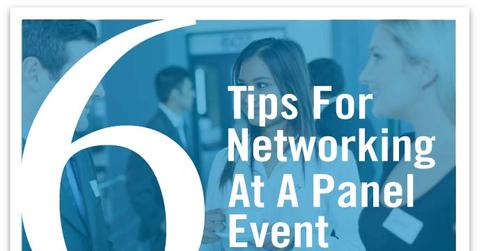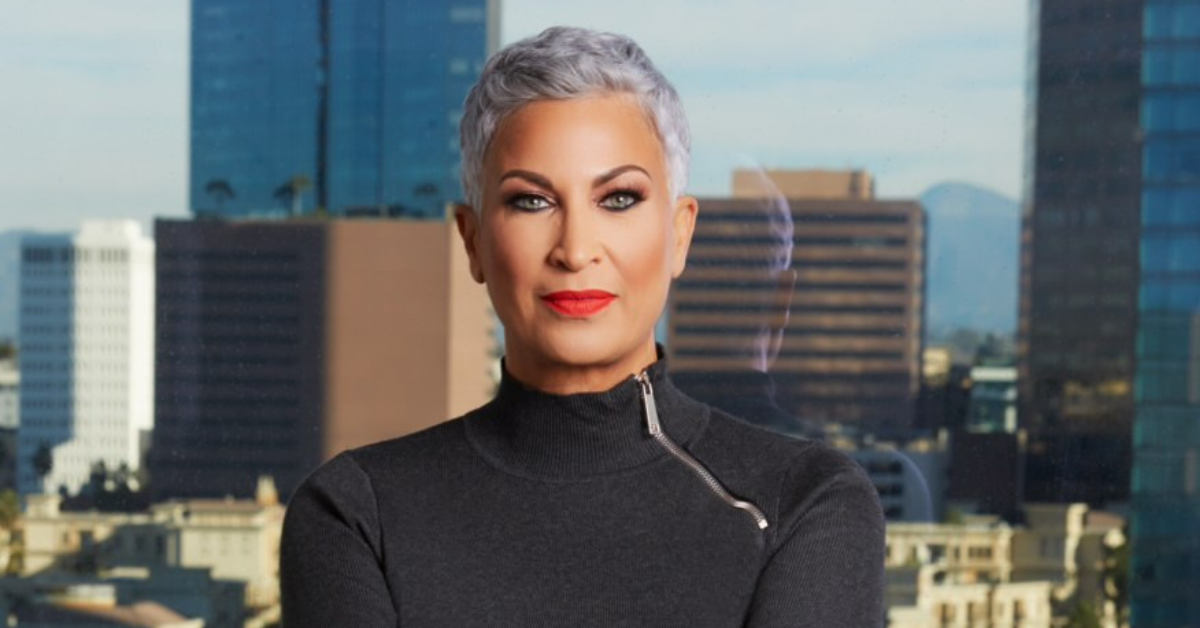6 Tips for Networking at a Panel Event

Networking at the end of a panel event is a little like playing the Hunger Games. No one is safe. There’s a lot of plotting, pushing and pinning down to be the last and most significant one standing (with a notable business card in hand that is.) Although the rush of people is inevitable, your experience doesn’t have feel so chaotic.
Panel events are prime opportunities to get yourself out there! Not only do the panelists share their stories of success they often interact with attendees and offer extremely insightful advice. Leaving the event with connections may seem like a simple task but “networking with the right people” is easier said than done.
After attending a panel event and spending the night observing some networking nightmares, I decided to compile a list of 6 things you can do differently to improve your experience.
1. Do your research.
Research is one of the most important ways to invest in something you believe in. Whether it’s your own brand or someone else’s you will suffer immensely if you don’t know the core concepts (and if you plan to work with them) specific ways you can contribute to their success. Taking yourself to a networking event is one accomplishment but having an idea of who will be in the room is a prize all in its own. Not only will you reap the benefits of knowing the “who’s who” to talk to before hand, you’ll also have something to talk to them about.
2. Be brave!
If you see an HR rep standing in the corner finishing up their last hor’dourves or wrapping up a convo with the event coordinator, that moment might be the best time to make your move! If you’ve done your research you can say something like “Hi, my name is __________ and I noticed you’re on the panel tonight to talk about _______. I’m really interested in your field (or company) how did you get your start?” Ask them about themselves as if you’d genuinely want to know (in which I hope you do), who cares if they start with the very basics! Remain humble.
3. Be mindful of people in the room.
Sure you came to this event because your friend dragged you along, or vice versa. No matter what brought you there your presence means a lot! Instead of standing around clacking drinks, taking pictures and acting like Diddy (meaning, it’s your party and the other people are there to set the scene) take some time to take things in and talk to people. If you went into the event blind of the panelist, be cautious of your actions. You never know whose shoulder you might bump while leaning in for the perfect selfie lighting. Before most VIP’s (as in Very Important Professionals) are escorted to the VIP or holding room they’re standing amongst you. Make the most of your resources. Try to network before the panel happens. It’s truly easier to exchange contacts that way and they are often the ones that have the most longevity. The end of the event is the WORST time to do anything besides prepare to leave, because trust us: everyone’s tired and looking for a way out!
4. Have an elevator pitch ready!
The elevator pitch is the scenario that places you into an elevator with a professional you need to meet and about 5-10 seconds to state your claim to fame. Don’t burden people with your autobiography, keep your pitch short, sweet and to the point. “This is who I am. This is what I do. This is where I’d like to be.” It’ll keep you from going off on a tangent as well as teach you how to efficiently work a room.
5. Network with your peers in the room.
When you walk into the event and see a bunch of millennials standing around your initial thought may be “Where are the real professionals? None of these people can get me a job.” This is true, for right now but who’s to say they can’t help you in the future? It’s funny that a lot of the time we forget that eventually we will all have jobs. As tough as it may appear, believe it! I would assume that the other students or post grads in the room have taken some direction with their life if they came to this panel event.
6. Ask REAL questions.
After you’ve met who you needed to meet, stood (or sat) through an half hour to hour of advice, it’s finally time for the Q&A! Don’t rush to the mic simply to be heard. Try to ask questions based around things that they’ve said or a point that was not clear. Ask questions that aren’t super simple or obvious and be brief. No one wants to be known as the person who spent 10 minutes introducing themselves and 5 trying to ask something that has already been answered or you can find via the company website. Be thoughtful and unique. Not only will it benefit the other panel attendees but everyone who needs to know you will remember you for sure.





